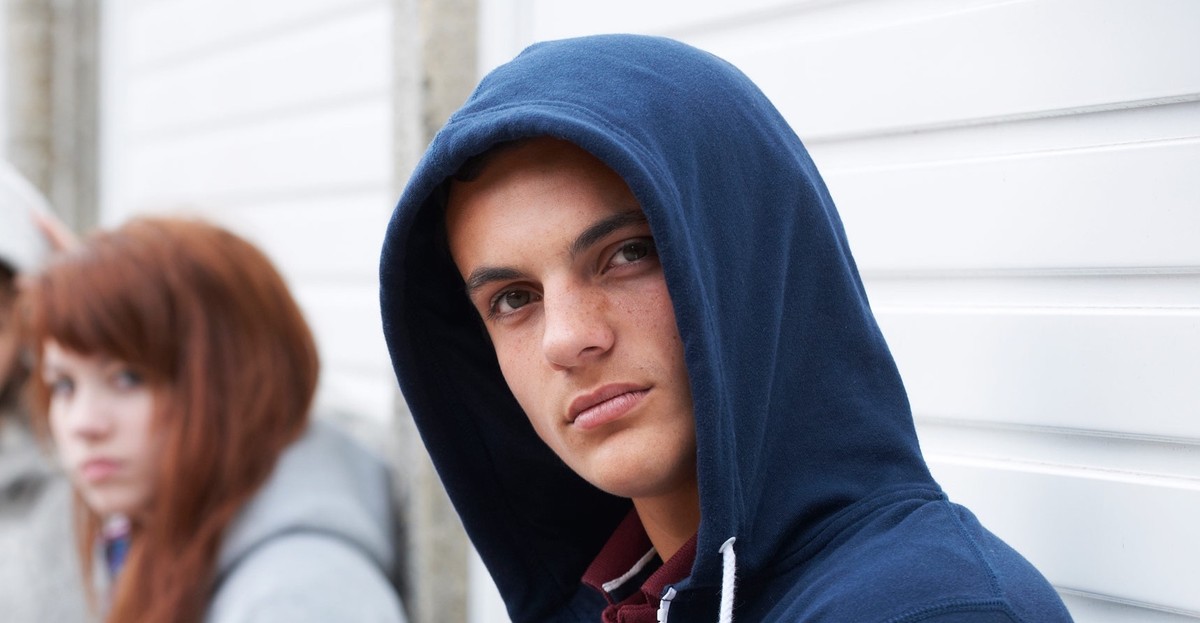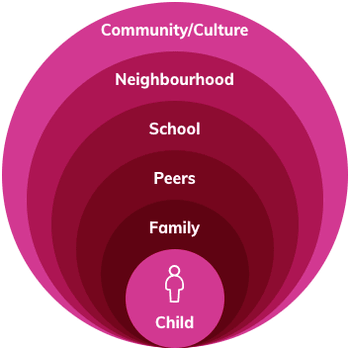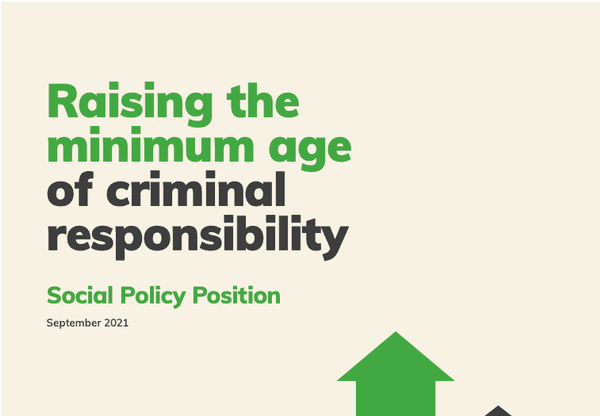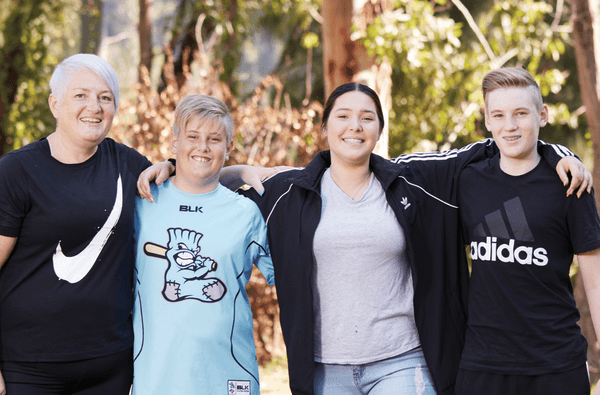
Supporting youth justice
Our youth justice services support young people to gain the life skills they need to disrupt anti-social or offending behaviour, to access meaningful employment and help them to recognise that they are valued members of the community. To achieve this, we offer services for young people including transport, housing, education and training, mentoring and alcohol and drug counselling. We also deliver evidence-based programs known to effectively address offending and other behaviours that can be seen as anti-social.
Why is it important?
Raising the minimum age of Criminal Responsibility
Life Without Barriers currently provides support to over 2,200 children in foster, kinship and residential care across the country, many of whom are vulnerable to having encounters with the criminal justice system. We recognise this is a serious problem and have therefore joined the campaign to raise the minimum age of criminal responsibility.
In Australia, children as young as 10 can still be found guilty of a criminal offence, prosecuted, convicted and sentenced. In 2020 alone, Australia imprisoned almost 500 children aged 10-13. These measures which are legalised in Australia now, are considered extremely harsh by international standards. In fact, the United Nations states that Australia currently lags behind the rest of the world in the age of criminal responsibility, with the global median age being 14.
Statistics from the Australian Institute of Health and Welfare show that children who receive child protection services, are nine times more likely to come into contact with the youth justice system, and Aboriginal and Torres Strait Islander children are 17 times more likely to be involved in both child protection and the justice system. In fact, 65 percent of children who are in detention are Aboriginal and Torres Strait Islander.
Through our work, we know that children who have experienced abuse, trauma or neglect are far more likely to offend than those who have not, and many children who offend have conditions which impact brain development including intellectual disability, developmental delay or acquired brain injury which is often linked to past trauma. These conditions reduce children’s ability to understand the impact of their actions and incarceration is known to have long term damaging impacts on children.
Every child deserves to be healthy and to reach their potential. In order to achieve this and to create a lasting change within our communities, more support must be offered to ensure children receive help and support including better access to mental health care, mentoring, education and employment opportunities.
Family-focused programs, like Multi-Systemic Therapy (MST) are reported to have the strongest current evidence of effectiveness in preventing or reducing youth offending. We work with people as young as 11 and their network of systems including family, peers, schools and neighbourhood through an approach that recognises the role of brain impairments on culpability, and on how criminal sanctions can entrench youth offending.
“Instead of imprisoning young children, and punishing them through traditional measures, we need to have services that are compassionate, adequately resourced and trauma-informed. We can do much better than prison for little children.”
Over the next 5 years, we will continue to engage in positive and constructive advocacy to improve social policies that impact people across a range of circumstances and communities in which we live and work. To learn more about this, you can read our Strategy 2025.
What is Multisystemic Therapy (MST)?
A family and home-based treatment that strives to decrease youth offending and prevent incarceration or placement in the care and protection system by empowering young people and families to function responsibly and successfully in their natural environments over the long term.
MST targets young people between the ages of 11 and 18 who present with serious or escalating antisocial and problem behaviour that may include substance abuse and serious criminal offending. MST reduces youth offending and antisocial behaviour by addressing the core causes of such conduct—and views the client as a network of systems including family, peers, school, and neighbourhood. MST seeks to build the strength of the natural systems that are most influential on a young person’s behaviour and empowers caregivers to be long-term change agents, creating more sustainable effects than treatment methods focused solely on the individual.
The model has been adapted or enhanced to address the needs of particular cohorts. Life Without Barriers can or does offer the following:
MST Prevention includes enhancements to meet the needs of families where there is a risk of escalating child abuse or neglect behaviours. It supports high risk families to stay together in their homes by increasing the safety and well-being of all children in the home, decreasing the risk that children and young people will become more deeply involved in the child protection or youth justice systems.
MST-CAN is an adaptation of the MST model designed to treat children aged 6 to 17 and their families who have come to the attention of child protection due to physical abuse and/or neglect and have been the subject of a substantiated report in the preceding 180 days. MST-CAN works with the entire family in an effort to keep children with their families and help the family resolve clinical and practical concerns so that children can be safe, prevent abuse and neglect, reduce mental health difficulties experienced by adults and children, and increase natural social supports.
Common treatment strategies include safety planning, Cognitive Behavioural Therapies for managing anger and addressing the impact of trauma, Reinforcement-Based Therapy for adult substance misuse, family therapy focused on communication and problem solving, and sessions to support the parent in taking responsibility for the events that brought the family to child protection.
MST and MST Prevention can be delivered as an early intervention strategy to prevent escalation of problem behaviours or as an alternative to custodial or out of home care placement where serious anti-social behaviour is present.
How is MST delivered?
MST is delivered through a partnership arrangement with the program developers and provider agencies who deliver the interventions. As well as delivering MST, Life Without Barriers has been licenced to support other agencies delivering MST, in Australia and New Zealand, through the provision of program start-up services, ongoing MST clinical support, quality assurance activities and organisational assistance. Life Without Barriers currently supports eight such teams in New Zealand and three in Australia. MST is implemented using the following framework:
- A single clinician working intensively with 4 to 6 families at a time
- Team of 2 to 4 clinicians plus a Clinical Supervisor (Team Leader)
- 24hours / 7 days a week availability using an on-call system
- 3 to 5 months is the typical treatment time (4 months on average across cases)
- Work is done in the community, home, school, and neighbourhood: removes barriers to service access
Why does MST work?
MST seeks to build the strength of the natural systems that are most influential on a youth's behaviour and therefore places a lower emphasis on the relationship between the clinician and the youth. The most critical therapeutic relationship is between the clinician and the parent or parental figure who manages the family -- the most powerful influence on the youth's behaviour.
- Treatment targets the causal factors associated with offending behaviour - criminogenic needs - family relations, peer relations, school performance, community factors
- Occurs in the young person's natural environment
- Providers are accountable for outcomes
- Program structure removes barriers to service access
- Staff are well trained and supported
- Significant energies are devoted to developing positive interagency relations
- Attention to model adherence and continuous quality improvement
MST will only work if we can effectively empower the young person's caregivers with the knowledge, skills and resources to effectively raise their children without the need for ongoing formal support from agencies.

This social ecological model demonstrates the various systems that influence youth behaviour and the relative power of that influence. The systems that play a greater role (quality and quantity of time spent) have a more long-term influence.
Interactions are reciprocal, and may occur between any combination of the systems in which the youth and family are embedded. The MST clinician will strive to take all interactions into account when attempting to understand factors linked with problems behaviours.
Relations between systems can indirectly predict behaviour (e.g. mum to teacher, parent to peer’s parent, etc.).
To learn more about Life Without Barriers Youth justice services call or email us on:
MST-CAN
Multisystemic Therapy for Child Abuse and Neglect (MST-CAN®) was developed to address underlying trauma that results in harm to children, young people and families who have come to the attention of Child Protective Services.
It is a 24/7 home-based treatment model for families with substantiated cases of physical abuse and/or neglect of children and young people between 6 and 17 years. Services are provided to all family members. The model targets children where a report of physical abuse and/or neglect has been received within 180 days of the referral.
Treatment addresses multiple factors known to be related to physical abuse and/or neglect and seeks to promote behavioral change within the family.
For more information visit MST-CAN website or email us on:

